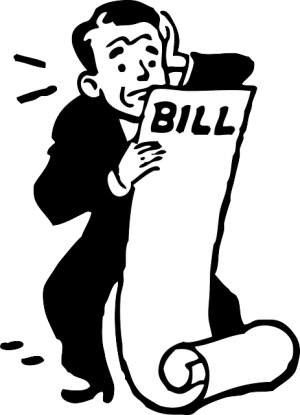Debt is a major issue being faced by families and businesses. It is not a good path and most of the times when someone is unable to pay their debts, they file for bankruptcy. This should not be the case for everyone as there other solutions.
Debt is a big problem all over the world. In the UK, the average debt per adult currently standing at a massive £29,210. In the US, the average household with debt carries $15,762 in credit card debt and $130,922 in total debt. Rising debt, plus a drop in income and savings, means 2016 is a rather uncertain one when it comes to our finances.
Debt Management Plan
A debt management plan is an informal repayment agreement between you and your creditors. You will agree a monthly sum and pay it back. Typically, a debt management company will manage such a plan for you. Find out more about debt management plans on this government website.
Individual Voluntary Arrangement
An individual voluntary arrangement, or IVA, is a formal agreement between you and your creditors. This means it is approved by the court. With an IVA, you would agree to pay off your debts over a set period of time. An IVA needs to be set up by a lawyer or an accountant.
Sourced from:http://www.lifehack.org/412326/alternatives-to-bankruptcy-debt-solutions-explained
Speak to a professional about your debt problems and they will be able to counsel you and even advice you on how to go about paying it. You might come up with a healthy debt management plan too.
Credit Counseling / Debt Counseling – There are some legitimate companies, including GreenPath, that offer free debt counseling to consumers who want to get out of debt. If you have significant credit card debt, you may be a candidate for is a debt management plan. With a debt management plan, you make regular payments to the credit counseling company, and they make payments on your behalf to the creditors. In addition to the convenience that this option provides, a debt management plan typically lowers credit card interest rates, waives late and over limit fees and stops collection activity. It can be a great tool for some people to help them save a lot of money and get out of debt faster.
Debt Settlement – If your debt is severely delinquent, you may find success in negotiating with creditors to pay less than what you owe. The obvious advantage to this would be the cash savings. The disadvantage would be the fact that your credit report will show that the debt was paid for less than the agreed amount, which would likely lower your credit score. Additionally, you’d want to consult a tax professional because you would likely pay taxes on the forgiven amount as revenue. If you are interested in this option, you could try your hand at communicating directly with the creditors. Debt settlement companies often charge high fees and offer no guarantees.
Sourced from: http://www.greenpath.com/university/bankruptcy/alternatives-bankruptcy
It would be wise to sit down and go through your mortgage and see what needs restructuring. This is to ensure that you do not face foreclosure due to debt.
 Restructure your mortgage. If you’re paying off your home, another method is to restructure or refinance your mortgage. By arranging a new mortgage payment plan, you may be able to save some money to put toward paying down your debt. It’s worth it if you can avoid bankruptcy or getting your home foreclosed.
Restructure your mortgage. If you’re paying off your home, another method is to restructure or refinance your mortgage. By arranging a new mortgage payment plan, you may be able to save some money to put toward paying down your debt. It’s worth it if you can avoid bankruptcy or getting your home foreclosed.
There are two basic ways changing up your mortgage can aid you in averting a bankruptcy filing. First is to negotiate an agreement with your housing lender to reconfigure your mortgage under a new payment plan. See if you can devise a new or temporary payment schedule under the same terms of your original mortgage. A second approach is to refinance your mortgage altogether, which may include applying for a lower, adjustable interest rate stretched out over a longer period of time. The money you save on the front end can be useful in paying off your remaining debt and staving off the threat of bankruptcy.
Sourced from:http://money.usnews.com/money/blogs/my-money/2012/05/16/5-ways-to-avoid-filing-for-bankruptcy